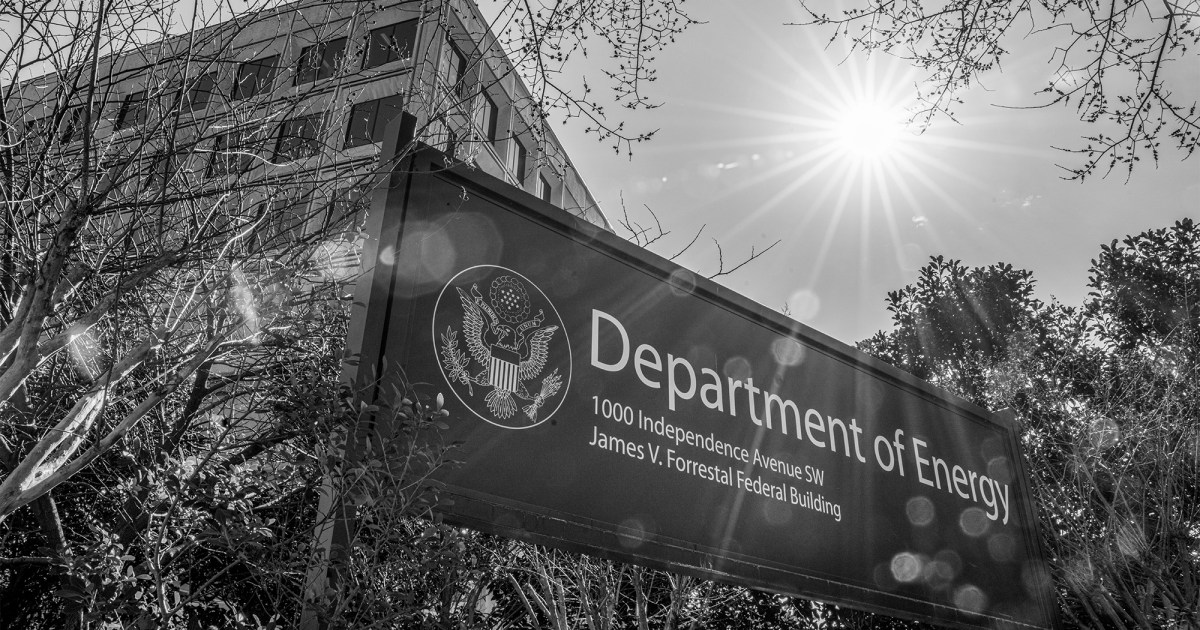In May, the Department of Energy quietly introduced a proposal to eliminate its longstanding requirement that new buildings receiving funds from the agency be accessible to disabled people—a rule in effect across the federal government since 1980, thanks to Section 504 of the Rehabilitation Act.
“Disability rights,” professor Jasmine Harris said, “are not uncontroversial as the Department of Energy claims.”
According to a document published in the Federal Register, the final rule will become effective July 15—unless it receives “significant adverse comments” by Tuesday, a month after the rule was proposed.
“The Department of Energy’s decision to rescind the Section 504 new construction accessibility requirement is a direct attack on disability rights and part of a broader pattern of civil rights rollbacks aligned with Trump-era policies,” said Robyn Powell, an assistant professor specializing in disability law at Stetson University College of Law.
“It is DOE’s policy to give private entities flexibility to comply with the law in the manner they deem most efficient,” part of the public document reads. “One-size-fits-all rules are rarely the best option. Accordingly, DOE finds good reason to eliminate this regulatory provision.”
“By labeling these long-established protections as ‘unnecessary and unduly burdensome,’” Powell said, the Department of Energy “is prioritizing private convenience over the civil rights of disabled people” in its rulemaking. (The agency did not respond to Mother Jones’ questions.)
More than 3,000 comments have been submitted so far, many after the launch of a campaign by the Disability Rights Education and Defense Fund (DREDF). “From our point of view, they cannot lawfully do this, because the regulations were reviewed by Congress,” said Claudia Center, the organization’s legal director. Beyond its mandated inclusion in the Federal Register, Center added, “There was no announcement, no press release that we saw” regarding the proposal—allowing it to largely slip under the radar.
The proposed rule, according to Center, “really just disrupts this whole idea of Section 504, and the regulations—which is that, over time, we’re going to have a more accessible society.” Attacks on Section 504’s disability protections through federal rulemaking are unprecedented, Center said.
Center’s wider concern: DOE’s move could be a blueprint for other Trump administration federal agencies to follow, extending it to a much wider range of buildings and institutions—a kind of trial balloon at a federal agency which draws less public attention, and controversy, than the departments of Health and Human Services and Education, for instance.
“The Department of Energy—not exactly an obvious hot spot for attacks on disability or other civil rights,” said University of Pennsylvania Carey Law School professor Jasmine Harris, who also specializes in disability law. “Anti-civil rights creep often happens away from the main stage, more likely to be under the radar.”
Cuts and opposition to disability rights and protections, Harris said, “such as the statutory requirements to require the new construction and alterations meet accessibility standards to comply with the law, are not uncontroversial, as the Department of Energy claims.”
In fact, Harris noted, this isn’t the agency’s first or only attack on civil rights via federal rulemaking. “The Department of Energy is seeking to eliminate a rule regulating a program that extends loans to minority-owned businesses because it purportedly conflicts with Students for Fair Admissions v. Harvard, a recent Supreme Court decision addressing race-based affirmative action programs in college admissions,” she said.
“If we don’t put a line in the sand here,” Center said, “other agencies will try and do the same thing—and we really need to stop it at the outset.”















